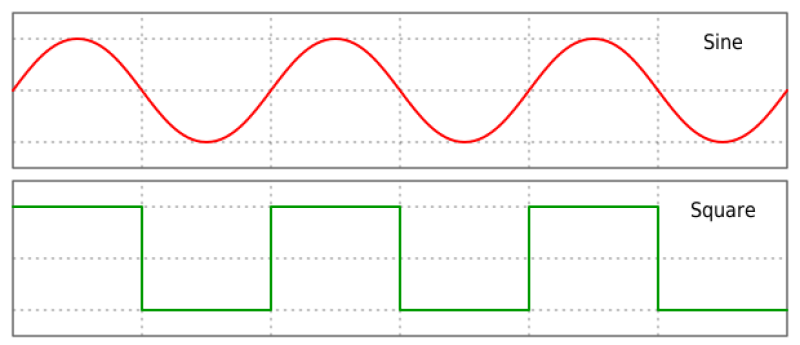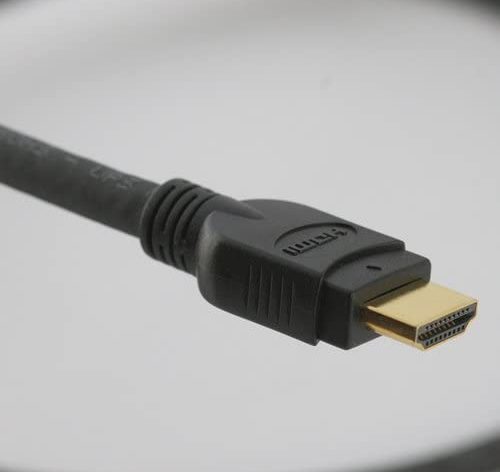Can Digital Cables Affect Sound Quality?
For whatever reason, a review of an “audiophile” ethernet cable has been popping up in my news feed over and over recently. It’s sort of driving me batty. I won’t link the article up here, but the conclusions were as forceful as they were ludicrous. The reviewer suggested you’d have to be deaf not to hear the difference between the audiophile ethernet cable and a regular one. After a few comments of support, a slew of electrical engineers descended on the comments suggesting that the reviewer was either on the take or a fool. At the heart, however, is the question: Can digital cables affect sound quality?
How Digital Cables Work
To start off with the obligatory disclaimer: I’m not an electrical engineer. I don’t pretend to be one. But I can Google stuff and get the opinions of people smarter and more educated than myself. One of my favorite resources when researching cables is Blue Jeans Cables. They not only sell quality cables, but they also have a wealth of informative articles about cables.
In a perfect world, the analogue cable conveys the signal in a sine wave that looks, well, like a wave. The digital cable conveys nothing but zeros and ones. This signal would look like a square wave with sharp transitions from positive to negative.

In actuality, the waveform of the digital signal can end up looking a lot like the analogue one because of many factors. But since the data is really only zeroes and ones, the signal is fairly robust. Until it isn’t. And when it isn’t, the signal completely fails. This is why people don’t often complain about HDMI cables affecting the image. They complain about them not working at all. From Blue Jeans Cables:
“But the difference between perfect rendering of a digital signal and total loss of signal can be surprisingly small; one can reach a threshold where the digital signal begins to fall apart, and not long after that threshold, find that there is no signal at all.”
–Blue Jeans Cables
I’ve personally seen that small zone where an HDMI signal starts to “fall apart.” The image is obviously compromised with many sparkles and visual distortions. It wasn’t a subtle effect. It was clear that something was wrong. Swapping out cables fixed the problem.
So, Can Digital Cables Affect Sound Quality?
While visual artifacts are fairly easy for even untrained people to detect, the audiophile cloaks himself in statements that suggest that the uneducated masses couldn’t hear these differences because…reasons. They’ll say that other people’s gear isn’t good enough to reveal the differences. They’ll say their content isn’t vinyl enough. That their ears are full of cotton.
I don’t know, they say a lot of junk.
In the end, we turn back to Blue Jeans Cables:
“…if the data all get through the cable in good order, without dropped packets, “better” cable quality will make no difference to the performance of a network.”
–Blue Jeans Cables
The assertion here is clear. While cables can make things sound worse, they can’t make them sound better. All a cable can do, at best, is pass the signal correctly. Anything else would indicate a failure of the cable. Most likely, a digital cable that was doing anything other than passing the signal correctly would not pass anything at all. Or, at least, not anything the equipment on the receiving end could understand. If there were alterations to the signal, they would be very manifest. They wouldn’t be hard to hear.
The suggestion that the digital cable is somehow making anything sound better is demonstrably impossible. There is no basis that I can find for it in science. A cursory knowledge of electricity, audio equipment, and 5th-grade science tells you that. Any assertion to the contrary is simply magical thinking.



I see you’ve avoided time and clocks and processing noise in this discourse.
If your transmitting a just a data file, a fuctioning cable should not matter, the data gets across your all good you can error correct and resend if not. Data sent.
If you have to process the data and regenerate in real time then real time clocks are involved, and the cable can also inject noise…. Hmmm. Noise also sent and also generated via source.
Asynchronous packets (with data being reclocked at the receiver) aside, some digital audio signals do actualy get sent over a cable at the sample rate time pulses and drive the clock rate over the cable, to which noise ingress, shielding, grounding, as well as the fact that the source time clocks might be poor and noise prone, and the source itself may be a pretty noisey electrical mess ( say a pc for instance, with alsorts of processing noise, or with a poor switching power supply). Admitedly half the issues arnt the cable… But inducing noise into the reciver from a baddly designed source via a cable is a cable/connection issue, as a diffrent connection design alltogether would be different, literally. Ethernet offers galvanic isolation by design, and does not drive the clock of the reciver…. so in principal should be good. But the reciver side then has to run processes to decode packets and then clock the data…. so processing… You can argue galvanic issolation isnt everything as well. See my last sentance.
Then there is the notion of optical being noise imune, but usually carries a clock signal, and often is not so well implimented .
Its very easy for Audiophiles and worst still audio sales scum to invent problems that are infact plane ingorance and lies, but its even easier for engineers to see sources of problems, be they vitally consequential or not, but they will be ‘real’. Its even easier for anyone to grossly oversimplfy and say ‘digital is digital’ … Its a grotesque oversimplification… Virtual ‘Ones an zeros’ are , sure thats the data definition, but electromagnetics and time and processing to make sound and pictures are not ones and zeros.
For a sanity check tho, most cables are well made, but some are defective, but the issues are often just poor gear, shit in gives shit out and cable cant resolve that. For almost anyone even with god tier gear, at the levels concerned your mains bourn noise and hum is the biggest issue, by a mahoosive factor…
I believe you’ve made my point for me. Sure, a digital cable can introduce noise, but it is the least likely culprit. In most cases, it is the devices on either side that are the issue. That said, any “noise” introduced in a digital signal isn’t usually (or ever in my experience) a subtle thing. The sound is clearly distorted. Those claiming that a digital cable can make subtle differences are usually lying.
While I too believe a digital cable are all the same. I have to say, that in my system. Going from the factory USB cable, to a $30 one, the soundstage moved and the ‘flatness’ was gone. While I thought this was just due to the $2 included cable. I then borrowed a Wireworld cable and again the sound improved. Since then, I’ve tried many USB cables. I am not one for spending crazy amounts on cables and getting those speaker cable elevators.
But I did end up with Tubulus Concentus USB cable (and I NEVER thought I’d spend that much on any cable)
My system sounds a lot different now, the wife can hear the difference. Friends that come over can also.
So while I can’t explain why, I don’t really care, it’s what I can hear, that I care about.
I still do the $30 cable to the $500 comparisons and everyone can hear the difference.
What I noticed:
Deeper cass
Wider soundstage
A crisp airy sound
Better separation of instruments
Clearer vocals
So if all cables are made the same, then I’m a non believer
I am using PS Audio gear and big JBL speakers.
I am now investing in the Tubulus Concentus I2S cable as it’s meant to add a further improvement.
I will say this, I borrowed a $1200 USB cable and compared it to my $500 one, and I think mine sounds better.
So just because a cable is expensive doesn’t make it good. I also went from the AudioQuest Coffee cable.
Just my real world 2 cents